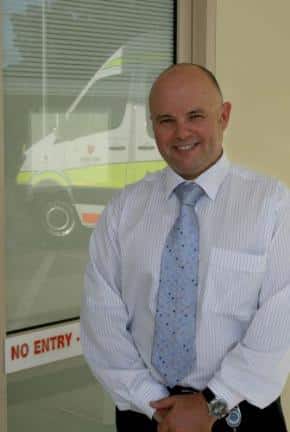
The head of HMRI’s Brain and Mental Health Program, Professor Chris Levi, was named today as a finalist in the Australian Museum’s annual Eureka Prizes.
The head of HMRI’s Brain and Mental Health Program, Professor Chris Levi, was named today as a finalist in the Australian Museum’s annual Eureka Prizes.

Established in 1990, the awards represent the pinnacle of scientific research, innovation, leadership and communication in Australia.
Professor Levi was nominated for the Jamie Callachor Eureka Prize for Medical Research, which is awarded to an individual or team conducting outstanding medical research translation.
The award is sponsored by NSW Trade and Investment and named in memory of Jamie Callachor, a valued colleague of the Ministry for Science and Medical Research who died suddenly in 2005.
Professor Levi works as both researcher and clinician, being the John Hunter Hospital Director of Acute Stroke Services and also a Director of the University of Newcastle Priority Research Centre for Brain and Mental Health Research.
When he took up his appointment at the University of Newcastle 12 years ago, there was no stroke research in the area.
He has since built a world-class interface between research and clinical practice, which has pioneered significant improvements in prevention of stroke, clinical treatment and patient outcomes.
“Their new model of pre-hospital stroke care has demonstrated how to overcome the time barrier to delivering effective stroke treatment in both metropolitan and now, rural regions. This has lifted stroke treatment rates in the Hunter to above international best practice,” HMRI Director, Professor Maree Gleeson, said.
“Importantly, it has made world-class stroke treatment available to our community, saving many lives and reducing the devastating impacts of a stroke on the person and their families.”
Stroke of genius: Professor Chris Levi has been named as a finalist in the prestigious Eureka Awards for science.
Stroke ranks as the third leading cause of death and the leading cause of long-term disability inAustralia. Each year around 60,000 Australians have a stroke – that is, one every 10 minutes.
Of these, about one third will recover reasonably well, one third will be left severely impaired and one third will die, so there is urgent need for better and more effective prevention and treatment.
The team is tackling stroke from many perspectives, including new acute stroke treatments, genetics, imaging and rehabilitation therapy.
Pioneering usage of clot-busting drugs has changed triage and pre-admission practices throughout NSW hospitals and been recognised internationally.
As well as saving lives and restoring lifestyle to stroke patients, Professor Levi’s work is saving millions of dollars at a health care level.
The Eureka Prize winners will be announced at a gala award dinner on September 6, 2011, at the Hordern Pavilion in Sydney.
HMRI is a partnership between the University of Newcastle, Hunter New England Health and the community.